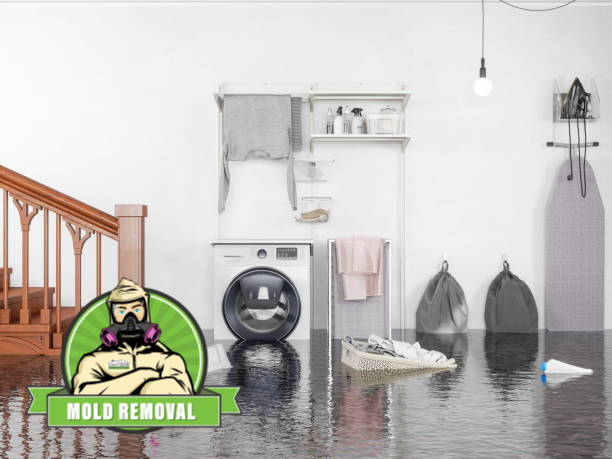How to Clean Up Your Basement after a Flood
Basement flooding in Rochester, NY can occur at any time, especially in the spring, when snow melts and spring storms begin. Flooding can occur even in dry weather due to unexpected blockages to the sewer system around your home. If you’ve experienced basement flooding, it’s imperative to deal with the situation immediately. To help you overcome such an emergency, check out this basement flood cleanup guide:
How to clean up a flooded basement
Tackling basement flooding repair yourself is not a good idea, so keep the number of a water damage restoration specialist on hand. However, if you want to handle the problem yourself, here are essential flooded basement repair tips:
Things to do immediately after a basement flood
- First, make sure that it’s safe to enter your home. Check for structural damage, such as cracks, holes or warping.
- Immediately shut off the electrical supply to your home at the main circuit breaker. Be aware of electrical wires that are under the water level.
- If the flooding is due to a burst water pipe in your home, shut off the main water supply.
- Avoid direct contact with floodwater, which may contain dangerous contaminants. If you must walk through floodwater, wear protective clothing, such as disposable overalls, eye-wear, gloves, and a face mask.
- Call your insurance company, take photos, and document all damaged items. Make a list of the belongings to restore and to discard. This will help you with your insurance claim.
- If you have a sump pump installed, wait for it to drain the floodwater. If the pump has a backup battery, it should drain the water even if the power is off.
Basement flood cleanup tips
- Quickly remove affected items from floodwater to avoid mold growth, warping, and rot. Items that suck up a lot of water (like carpet and furniture) can usually be salvaged if they have been in floodwater for less than 24 hours. Otherwise, throw them away.
- Completely dry the basement to avoid further damage and mold growth.
- Suck up the water with a sump pump and a Wet-Dry vacuum.
- Use dehumidifiers and ventilate the basement as much as possible. Use fans and open windows if the weather allows, but not when the outside humidity is high.
- Remove the baseboards (if present) and drill 1-inch holes halfway between the wall studs at the base of the walls. This allows moist air from behind the walls to evaporate.
- Properly drying a flooded basement may take up to two weeks.
- After everything has been dried, clean and disinfect the basement contents and structure (walls, foundation floor, drywall, etc.). You may need to discard the drywall and wood if a lot of mold has developed.
- Don’t use bleach to clean mold because bleach kills live mold but not mold spores. Household detergent is preferable.
- Regardless of the size of the mold-affected area, strongly consider contacting a mold remediation company. They can identify the moisture source and restore the moldy surfaces efficiently and without risk of mold recurrence.
- Make any necessary repairs, such as filling foundation cracks, replacing damaged drywall with a mold-resistant type, and sealing windows and vents.
- If your basement has been flooded with sewage, check out our tips to handle sewage backup in a basement.
How to prevent basement flooding
- Clean your gutters and downspouts and divert rainwater six feet away from the house. Also, make sure the ground is slightly sloping away from your home.
- Install an emergency generator to provide your house with electricity during blackouts.
- Install a sump pump that automatically drains water from your basement and prevents water from rising. Choose one with a backup battery.
- Seal openings or cracks in the walls, floors, foundations, and windows of your house.
- Install porous pavement around your home to help absorb rainwater and thawed snow.
- Ensure that your drainage systems and plumbing are working properly. Have them checked periodically by a professional.
For basement flood cleanup, call Craftsman Home Remodeling
Whether your basement has flooded due to excessive rain, sewage backup, a pipe burst or other causes, we stand ready to come to your property’s rescue. Our technicians are certified and trained to deal with emergencies like basement flooding repair, mold removal, and water damage restoration.
Share this Post


